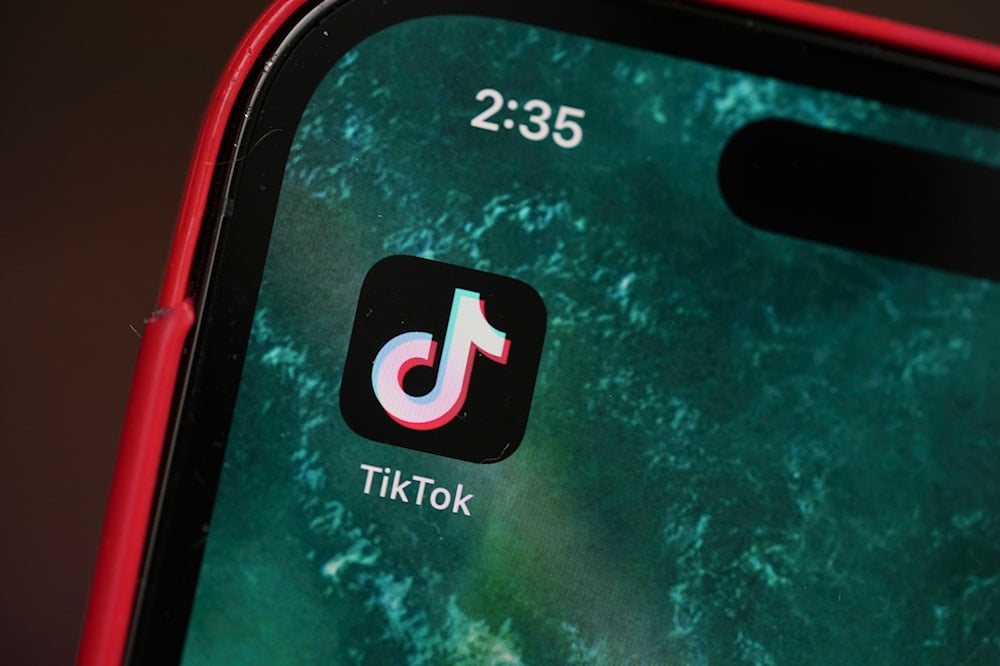Half of top mental health TikToks have misinformation: The Guardian
Over half of TikTok’s top mental health tips videos contain misleading or false content, an investigation by The Guardian reveals, prompting experts and MPs to call for stricter online safety regulations.
-

The logo for TikTok is displayed on a mobile phone, Friday, Jan. 17, 2025, in Denver, Colorado. (AP)
The majority of popular mental health advice videos on TikTok spread misleading or false information, a The Guardian investigation published on Sunday found.
Many people seek mental health advice on social media, where influencers often spread misinformation, misusing therapy terms, pushing unproven "quick fixes" like eating oranges in the shower for anxiety, promoting dubious supplements like saffron, or falsely pathologizing normal emotions as disorders.
MPs and experts characterized the revelation that social media platforms are flooded with misleading, harmful, and occasionally dangerous mental health advice as "damning" and "concerning," while pressing the government to implement stricter regulations to shield users from the proliferation of misinformation.
The Guardian compiled the top 100 videos using the #mentalhealthtips hashtag on TikTok and had them reviewed by psychologists, psychiatrists, and academic experts to assess whether the content contained misinformation.
After analyzing 100 videos offering mental health guidance on trauma, neurodivergence, anxiety, depression and serious psychiatric conditions, experts identified misinformation in 52 cases while noting many others provided either overly vague or ultimately unhelpful advice.
Misrepresentation of therapy
Some posts inaccurately used therapeutic terms like wellbeing, anxiety, and mental disorder interchangeably, potentially creating confusion about mental illness's true nature, according to David Okai, a consultant neuropsychiatrist and psychological medicine researcher at King's College London.
Numerous videos presented broad mental health recommendations drawn from limited personal anecdotes and individual experiences, approaches that "may not be universally applicable" according to Okai's analysis.
The content demonstrated how social media's brief, attention-seeking formats often oversimplify the complex nature of professional therapy, while disproportionately promoting therapeutic approaches; despite their proven benefits, therapy isn't a magical cure, instant solution or universal answer, Okai noted.
Everyday experiences 'pathologised'
Some videos incorrectly present normal emotions and everyday experiences as symptoms of serious mental health conditions, according to Dan Poulter, a former health minister and NHS psychiatrist who evaluated content about severe mental illness.
“This is providing misinformation to impressionable people and can also trivialise the life experiences of people living with serious mental illnesses.”
While most trauma-related videos included some element of truth, they frequently oversimplified and failed to adequately address the complexities of post-traumatic stress disorder and trauma symptoms, according to Amber Johnston, a British Psychological Society-accredited psychologist who analyzed the content.
Johnston noted that the videos wrongly present PTSD as a uniform condition with identical symptoms that can be summarized in brief clips, when in reality, trauma responses vary significantly between individuals and require professional assessment to properly understand each person's unique experience.
“TikTok is spreading misinformation by suggesting that there are secret universal tips and truths that may actually make a viewer feel even worse, like a failure, when these tips don’t simply cure," she added.
Algorithms pitted against the law
TikTok stated that it removes content discouraging professional medical care or promoting harmful treatments while also noting that UK users searching for mental health terms like depression, anxiety, autism or PTSD are automatically directed to NHS resources.
The ongoing parliamentary inquiry into social media misinformation has identified significant concerns about whether the Online Safety Act effectively addresses harmful or false online content and the algorithms that promote it, according to Chi Onwurah, the Labour MP chairing the technology committee investigating these issues.
“Content recommender systems used by platforms like TikTok have been found to amplify potentially harmful misinformation, like this misleading or false mental health advice,” Onwurah said, “There’s clearly an urgent need to address shortcomings in the OSA to make sure it can protect the public’s online safety and their health.”
The findings demonstrate a concerning level of harmful misinformation that requires immediate government intervention to protect the public, according to Liberal Democrat MP Victoria Collins, who described the results as "damning."
The spread of mental health misinformation on social media platforms raises serious concerns, particularly as these unverified "tips" should never replace professional medical support from qualified practitioners, according to Paulette Hamilton, the Labour MP chairing the health and social care select committee.
While social media can raise mental health awareness, people must have access to reliable, evidence-based information from trusted sources, as only qualified professionals can provide proper diagnoses through comprehensive assessments, according to Prof Bernadka Dubicka of the Royal College of Psychiatrists.

 4 Min Read
4 Min Read










